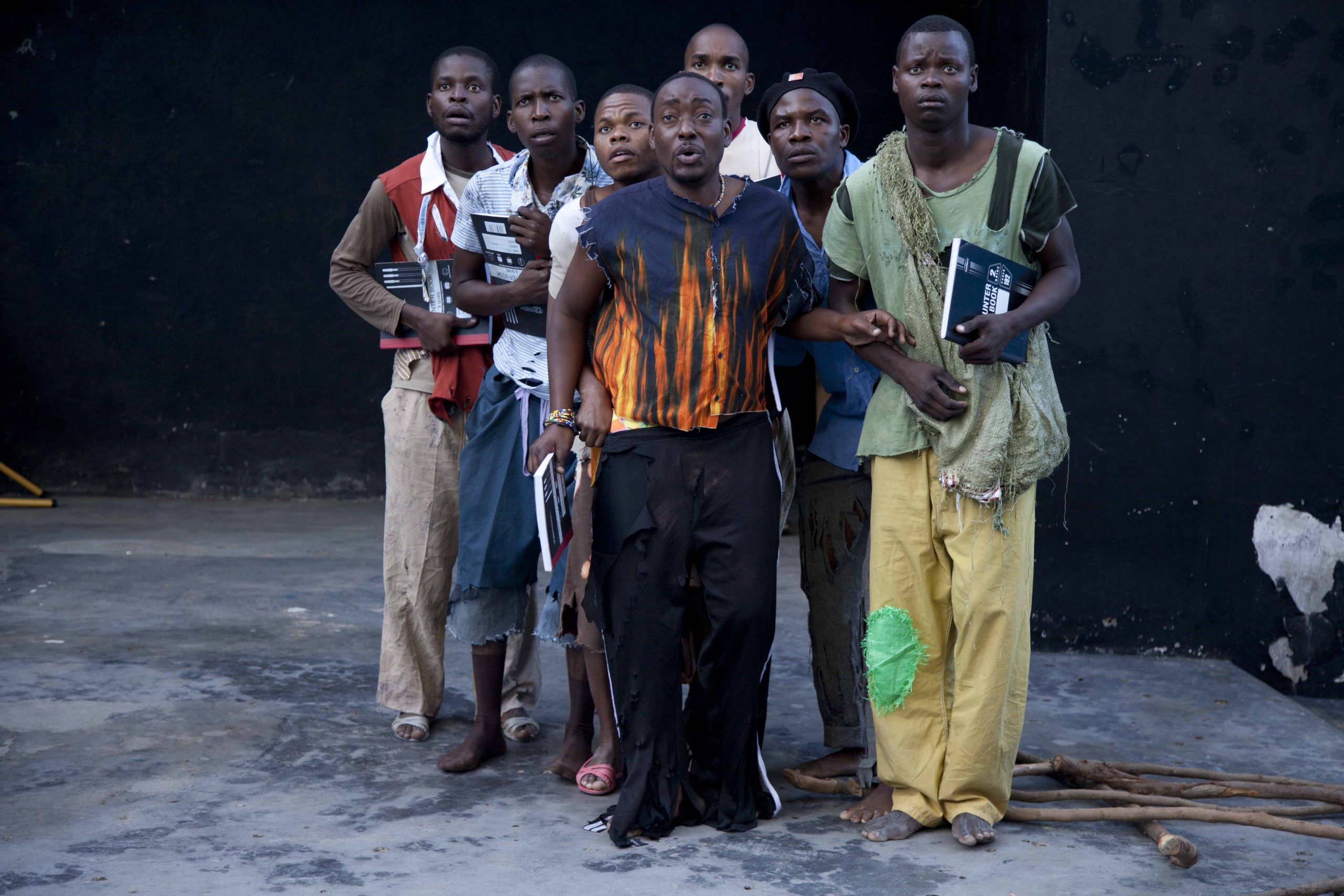“Is it a crime not to know how to read? Is it a crime to be illiterate…?”, asks Johane Tchokola, the Mozambican incarnation of Juhani Jukola. His questions echo in the nighty sky of Maputo, right over the amphitheater of Casa Velha in the Mozambican capital city.This is a presentation of the theatre play “Seven Brothers” by Aleksis Kivi, performed by a group of 4th year theatre students of the Communications and Arts department of the University of Eduardo Mondlane in Mozambique.The presentation was put together in direct collaboration with the Finnish theatre association Agora and it was directed by Laura Jäntti. On the May 4th the presentation was followed by a debate about the mainstay of the play: the relation between citizenship and access to information and education. The debate was facilitated by a well-known Mozambican journalist and jurist Tomas Vieira Mario. He opened the discussion with a reference to James Madison who declared that “knowledge will forever govern ignorance”.Tomas Mario was accompanied by three recognized panelists: Luis de Brito, a researcher specialized on governance; João Pereira, a researcher and a social activist; and Soila Hirvonen, a development consultant and a former Kepa country director.***In his opening statement Luis de Brito reflected about all those Mozambicans who do not have access to education, and who therefore live like the seven brothers before social pressure forced them to learn the alphabets and the norms of the society. These ‘non-citizens’ still outnumber those Mozambicans who have had access to school education and who know their rights.João Pereira, who happens to be a former student of the first speaker, Luis de Brito, recognized the importance of education by honoring his former teacher.Soila Hirvonen elucidated the audience of the social context in which the theatre play was written and pointed out that school education was then established as a condition for citizenship in Finland as in those days one could no longer get married without knowing how to read the Bible.When invited to express their opinions, the theatre audience seized the opportunity and one person after another, and yet another, and another, grabbed the microphone to get their voices heard. People had clearly a vivid interest of the topic of the debate.Various comments were expressed but the essence of all statements was one: Education is the vital key to citizenship. “Knowledge is like a lantern in the darkness”, summoned up one person allegorically.It was very easy to agree with all the comments voiced. Without information, what exists is only a theoretical possibility of citizenship. In order to trigger the possibility, people need to be aware of their rights.“But does the national education system teach children about their rights?”, someone asks provocatively in the audience. No, it does not. Nowadays, across Mozambique, more and more children go to school, but the system is not exactly geared to educate active citizens.What still largely reigns is the conservative authoritarian pedagogy that preaches respect towards those who are elder and those who have more power.***Obviously, access to information is an issue of power. Those who have information, have the power. Indeed, knowledge governs ignorance, as Tomas Mario had pointed out. The power-holders maintain their supremacy by keeping the others ignorant.People who are unaware of their civil rights do not make demands and, more importantly, do not question the legitimacy of those who are declared to govern them. Uninformed people tend to accept the authority passively, no matter how abusive it may be, affirmed also Luis de Brito.While the debate went on, I remembered a discussion that I had some time ago with an illiterate, middle-aged woman in a remote village in northern Mozambique. We were talking about the previous presidential elections and, to my surprise, the woman told me that since she turned 18, she has voted in every presidential election.Curious to know, I asked if she would tell me whom she voted for the last time. Quite bluntly she said that she had voted for the ruling president, the leader of the party that has governed Mozambique since the country became independent as she felt it is her duty to vote for the ruling party.It was only there and then that I realized to which extent the power-holders take advantage of the ignorance of people. They twist the civil rights and convince the people, not about their duty to vote, but about their duty to vote for the ruling party.There will be municipal elections in Mozambique this year and presidential elections in the year to come. Once more the Mozambican citizens and ‘non-citizens’ will vote for their future. And again, the power holders will start the race to distort the information about the civil rights.To answer to the initial question, there is clearly no citizenship without information. And further, there is no democracy without information. Only informed people can defend their rights and fulfill their duties. Education is the key, indeed. But what Mozambique needs, is an education system that educates citizens, and not just people.Author works as Kepa’s Country Director in Mozambique.

Is there citizenship without information?
Aleksis Kivi’s Seven Brothers performed by a group of theatre students in Mozambique, followed by a vivid panel discussion brought out the importance of knowledge as the base for civil society.
Teksti: Minna Tuominen Kuva: Mauro Vombe